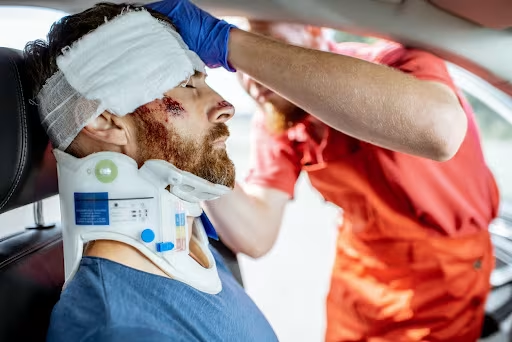When an employee in Kentucky gets hurt in a car accident on their way to or from work, people naturally wonder if the employer could be on the hook. Generally, employers aren’t responsible for injuries during an employee’s regular commute between home and the workplace. That’s mostly because this kind of travel is seen as a personal thing—outside the actual scope of work.
But, as with most things, there are exceptions. If the employee is driving for a work reason or gets called back to the office unexpectedly, the employer could end up responsible for medical bills or lost wages under workers’ comp. It’s important for both workers and businesses to have a handle on these details so nobody’s caught off guard.
Kentucky employees involved in work-related car accidents might want to check out personal injury resources to get a clearer picture of where they stand. Knowing when protections kick in can make it easier to figure out if there’s a valid claim after an injury. Curious about similar cases? There’s some extra info on car accident injury claims in Kentucky that could be worth a look.
Determining Employer Responsibilities for Commute-Related Car Accidents
Figuring out liability for car crashes during commutes really comes down to whether the employee’s actions were tied to their job, and if the company had any control or got any benefit from those actions. It’s all about the specific details—how closely the accident connects to the employer’s interests.
Understanding the Scope of Employment
Employer responsibility usually hinges on whether the employee was acting within the boundaries of their job. If they’re doing something that furthers the company’s business, the employer might be on the hook under vicarious liability. This is most common when the employee is driving during work hours, handling job duties, or running errands for the boss.
Commuting from home to work, though, is typically outside those boundaries. The so-called "going and coming" rule means these trips aren’t the employer’s problem—unless the employer provides the car, or the travel is required for business. Companies need to look at whether the travel time and reason really match up with the worker’s job to get a sense of their own liability.
Exceptions to Employer Liability During Commuting
There are situations where the usual rules don’t apply. For instance, if someone’s driving a company car, or if the commute includes a stop for a work task, the employer might have some responsibility. The law sometimes recognizes “dual purpose” trips—where personal and work reasons overlap.
Travel for things like job training, meetings, or conferences can also put responsibility on the employer. If the trip is for the company’s benefit or is a job requirement, the employer could be liable for accidents along the way. These exceptions aren’t always obvious, so the details really matter.
Impact of Work-Related Tasks on Liability
If an accident happens while the employee is handling duties assigned by the employer or doing something for the company’s benefit, liability can shift toward the employer. Running errands, going to client meetings, or moving goods often means the employee’s actions are under the company’s control.
This comes from legal concepts like respondeat superior, where the employer is responsible for what workers do on the job. If the company provides a vehicle or pays for travel, that can also increase their accountability. Having clear travel policies helps everyone know where they stand.
Workers' Compensation, Insurance, and Safe Driving Practices
Employers in Kentucky have some specific legal and practical concerns when employees get hurt in car accidents off-site. Figuring out when benefits apply during commutes, what insurance actually covers, and how to encourage safer commuting all help manage risks and keep things running smoothly.
Workers’ Compensation Coverage in Kentucky
In Kentucky, injuries during the regular trip to or from work are usually excluded from workers’ comp benefits. That’s the “coming and going” rule in action—commuting accidents generally don’t count as job injuries.
But if the commute is part of a business errand—like traveling between job sites or running employer errands during work hours—the injury could qualify for coverage, including medical bills and lost wages.
Even if a commute accident isn’t covered, employers should remember there might still be legal duties around overall workplace safety that affect broader employee protections.
Insurance Coverage Considerations for Commute Accidents
Most commercial insurance policies don’t cover accidents during a typical commute—unless the employee is on a work assignment at the time. For regular commutes, personal auto insurance is usually what covers injuries and damages.
If employers require travel for work in company vehicles or along certain routes, they should double-check that their auto and liability policies actually cover those situations. Drawing a clear line between personal and business use can make a big difference in claim outcomes.
It’s smart to keep documentation updated and to notify insurance providers quickly after any employee car accident. That way, processing is smoother and there’s less risk of running into coverage disputes.
Employer Strategies to Promote Safe Commuting
Instituting responsible travel policies can go a long way in reducing incidents and the headaches (and costs) that come with them. Employers might try things like:
Making sure everyone actually follows traffic laws and wears seatbelts—no exceptions
Reminding folks to keep up with vehicle maintenance (especially for company cars)
Offering real-world training on defensive driving and staying focused behind the wheel
Giving a shout-out or some kind of reward to employees who keep a spotless driving record
Setting up regular training and keeping the lines open for reporting sketchy conditions helps keep everyone on their toes. Sure, it’s about safety, but it doesn’t hurt that it can help with insurance and liability, too.



